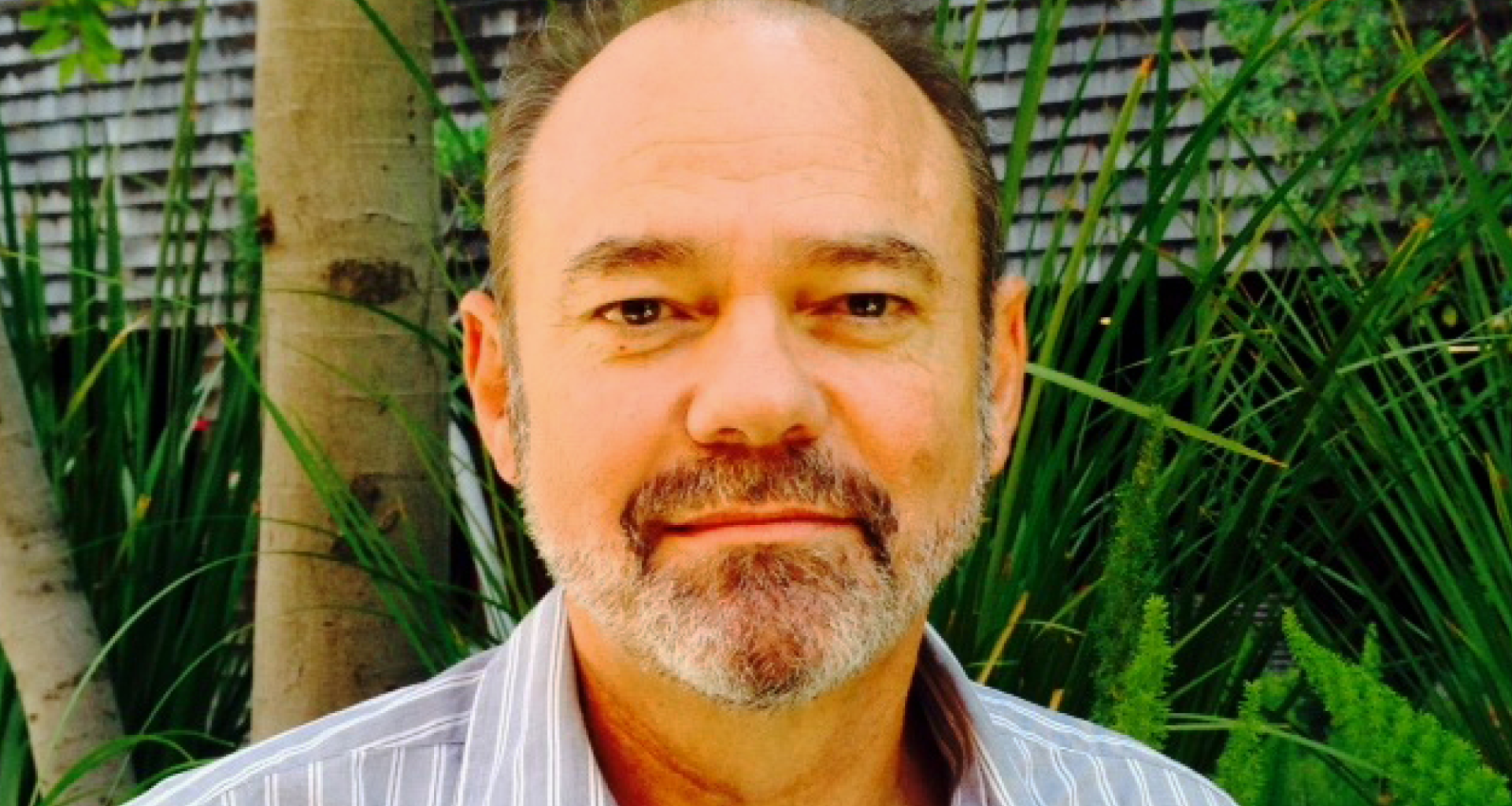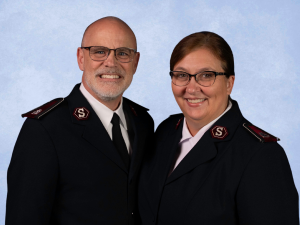Have you ever walked away from a team meeting or some other gathering feeling completely misunderstood? Or maybe you’ve been frustrated because a colleague just doesn’t seem to “get” how you like to work?
That’s exactly what we’re exploring today—the “hidden language,” especially, of team communication.” Did you know every single one of us has a unique communication style shaped by our personality? And most of us have never taken the time to decode what that actually means for how we interact with others.
This episode is a bit of a mini-workshop of sorts with Dr. Jack Anderson, a psychologist and Director of Officer Care and Development for The Salvation Army in the western U.S. He works with Salvation Army officers, or pastors, on exactly these kinds of interpersonal dynamics.
Hopefully, you have your own Big Five personality assessment results in front of you. If not, pause this episode, go take the assessment—find a free one here or simply Google Big Five test—and come back. Trust me, this conversation will take on new meaning when you can see your own numbers reflected in what we’re discussing.
Along the way, I have to warn you, we use some of my assessment results as examples, so you’ll get to know a little more about me as you hopefully come to better understand and interpret your own results.
I’ll be honest—when I first read through my report, I thought, “Okay, so I’m introverted, highly organized, and like new ideas. I could have told you that.” But as I’ve dug deeper, I can see these aren’t just interesting facts about myself. They’re the blueprint for how I show up in every team interaction, how I process information, what energizes me, what drains me, and why I sometimes feel like I must be speaking a foreign language.
Alongside the Big Five, we’re also drawing from insights by David Brooks and his book, “How to Know a Person: The Art of Seeing Others Deeply and Being Deeply Seen,” particularly his idea that the crucial fact about someone isn’t what category you can put them in, but what stories are defining them. Because knowing the difference between seeing someone and truly knowing them? That changes everything about how we communicate.
So with that in mind, today Dr. Jack Anderson will help you decode what your Big Five results mean for your daily communication, how to move beyond surface-level personality observations to understand the deeper stories that shape how your teammates operate, and finally, practical strategies to bridge communication gaps and build the kind of team culture where everyone feels heard, valued and understood.
Whether you are leading a team, or you’re the person who feels perpetually misunderstood in meetings or other gatherings, this conversation is designed to give you tools you can use immediately.
Show highlights include:
- Dr. Jack Anderson explains what personality is, how psychologists measure it and why the “Big Five” traits (OCEAN) are widely recognized across cultures.
- Openness, Conscientiousness, Extroversion, Agreeableness, and Neuroticism: what each trait means, examples of high vs. low scores and how they influence daily life.
How personality differences can cause misunderstandings, with real-life examples from team and relationship dynamics. - Why knowing both your own and your team’s personality profiles can improve communication, problem-solving and collaboration.
- The upsides and downsides of scoring high or low in each trait, including perfectionism, people-pleasing and avoiding conflict.
- Tips for bridging gaps between different personality types, especially around deadlines, communication styles and group decision-making.
- The difference between “seeing” someone and truly “knowing” them, including how to look past social masks and build trust.
- Insights from David Brooks’ “How to Know a Person: The Art of Seeing Others Deeply and Being Deeply Seen,” on calling out the best in others, showing respect and strengthening trust even across differences.
- Simple, intentional practices to repair trust, build relationships and encourage more playfulness in teams.
- Dr. Anderson shares what inspires him: watching people face challenges head-on, seek resources and develop the skills to overcome obstacles.
Listen and subscribe to the Do Gooders Podcast now. Below is a transcript of the episode, edited for readability. For more information on the people and ideas in the episode, see the links at the bottom of this post.
* * *
Christin Thieme: Can you help us understand what is personality and why is it even something that we measure or explore or look at?
Dr. Jack Anderson: Personality is measured in different ways. In psychology for instance, there are personality tests that measure more dysfunction or problem areas like depression and paranoia and psychopathology. But what we’re going to talk about today are normal traits of personality. And there are different tests that have been used, but the best one is based on what’s called the big five personality traits. So these seem to be universal traits that you could measure in any culture, and they’re fascinating to look at. So psychologists, when they measure personality, it’s not perfect. Thing that psychologists can measure best is intelligence. But when you get to personality, I would say these are good estimates of how you can describe yourself. Five core traits of personality.
Christin Thieme: It’s so nuanced it’s hard to really get an exact measurement of someone’s true personality, I’m sure. But can you help us understand what are the Big Five?
Dr. Jack Anderson: So this is a list of the five core traits of personality. You can remember these from the acronym OCEAN. So the trait of openness that has to do with the creativity and exploring adventure. The second one, conscientiousness, which has to do with referring a more structured view of the world and how you … We’re bringing order out of chaos the way you live your life. One that’s probably most familiar to people is extroversion. Being more extroverted or more introverted. And the fourth one is agreeableness, which you might think of as just kindness, getting along with people easily. And the fifth one called neuroticism. You might think of this as how sensitive are you to threats from the outside world.
Christin Thieme: As a whole, what do these specific traits tell you about a person?
Dr. Jack Anderson: As a whole this describes kind of how you live and breathe and move through life. So you could describe different things about a person, like how smart they are or what food they like or how they decorate their home. Well, these are aspects of how we interface with other people, actually how we view things. We like to think that we view the world objectively, but the fact is we have lenses over our eyes, which filter and color the world in a very unique way. And so these five traits are part of that filtering mechanism. Well, I’ll give you an example. You’re in a group and you see a quiet person maybe sitting by themselves off to the side. One person could interpret that and say, “This is a shy individual.” So they’re giving an interpretation to what they see. But another person might interpret it, say that person’s rude or snooty or snobbish that’s why they’re not interacting with the group. So that’s how we tend to interpret things.
Christin Thieme: And it’s one thing to look at your own scores and understand your own personality better, but what value is there in looking at the group’s overall personality to know or be aware of the different traits of your group?
Dr. Jack Anderson: I’ll give you an example. I was working with this missionary team. Two gals were teaching university in China. They had a very busy job. They were teaching English to Chinese college students and they liked each other well enough. They shared an apartment and at the end of the workday they’d come home. One of the two people wanted to sit down and have a snack and talk about their day and debrief. The other person went straight to her room, shut the door and went on the internet. So this over a couple of months caused a lot of conflict. The interpretation was the more extroverted teacher thinks this woman doesn’t like me, she doesn’t like talking. She’s rude and started fabricating all of these ideas about the other woman. Well, we had a team meeting and we actually took the big five personality test showing … And this is no surprise. One highly extroverted, the other one highly introverted. And just by realizing they were different people, they stopped criticizing and rejecting each other and they were able to negotiate.
Let’s do some give and take. So we get along and enjoy our relationship as much as we can and we’ll plan certain times when we’re together and time when we aren’t. Anyway, just knowing how they were different in terms of temperament really helped. The more we understand our own makeup and get to know other people, we know how to adjust our communication, how to solve problems, how to move forward on projects together the best way that we can.
Christin Thieme: There’s a book I know we both enjoyed by David Brooks called How to Know a Person and he talks about the big five in the book and really focuses in on this difference between seeing someone and truly knowing them. So from your perspective, what’s the difference between seeing someone’s communication style, their personality, versus truly knowing how they operate?
Dr. Jack Anderson: Well, I think that’s the difference between just observing someone and then taking the time to see what’s behind the curtain. We have this part of our personality called our persona, which is a mask that we put on in social settings. And that mask sometimes doesn’t accurately reveal who the person is. So it’s only through building trust over time and self-disclosure and asking good questions that we get to know more about who a person is. Their deeper level of thoughts and feelings.
Christin Thieme: Yeah. And this is one way in.
Dr. Jack Anderson: One way in. Yes.
Christin Thieme: So with the Big Five specifically, how would you go about reading and understanding your own test results?
Dr. Jack Anderson: So again, it’s not a lengthy inventory, presuming you were really candid and answered the questions. It’ll give you a pretty good representation on how you score on these five core traits. So this is a brief description of what openness is about. People who are high typically creative, open to trying new things, focused on tackling new challenges. You might think of open people as not liking strict borders around things. They like flexibility life. They tend to be more adventurous. When you look at artists and writers, they tend to score very high on openness. If you scored low on this trait, these are people who like the tried and true method of doing things in life. You get a routine down, it works well, so you want to stick with it and less likely to brainstorm and explore a new territory. Christin, you are an author and writer and creator. So I’m curious how you scored on this.
Christin Thieme: My openness score was above average. It was at 69.
Dr. Jack Anderson: Okay. So what that means if you were in a group of 100 people you scored higher than 69 of those hundred people. So you look at these descriptions, do these seem to fit you?
Christin Thieme: I think so. Definitely the trying new things. I love a good challenge, being able to figure something out and try something, see how it works. That imaginative opportunity, if you will.
Dr. Jack Anderson: When you take a vacation, would you rather go to a familiar place that you’ve enjoyed and just stick with that same place year after year or maybe try new adventures?
Christin Thieme:
I have my places that I like to go to, family places, those nostalgic places and trips so I do have those. But if I was just given carte blanche to plan a vacation or a trip, then I like to go somewhere new.
Dr. Jack Anderson: Yeah. Okay. So that’s exploring new territory. Okay, well let’s look at the next one. Conscientious people are folks who like predictability. They tend to be self-disciplined. They’re hard workers. They’re not discouraged easily. They put their shoulder to the task and want to see it to completion. And people who score low tend to procrastinate more. A little more laid back in life, less goal-oriented, less driven by success, more driven by experience. How did you score on this, Christin ?
Christin Thieme: I scored a 90 on this one, which I was surprised. It was so high. This was my highest.
Dr. Jack Anderson: This is a very interesting trait because in some ways if you score really low on conscientiousness, you have a more difficult time in life because there’s just more disorderliness, more chaos to deal with. People who score high tend to move into positions where you need drive and precision detail to the task. Things like that.
Christin Thieme: I definitely can identify with the orderliness and wanting to have a plan and prepare. It definitely fits my personality.
Dr. Jack Anderson: Can you think of any downside to scoring high on conscientiousness?
Christin Thieme: Definitely. The whole idea of spontaneity sometimes really irks me. I like to know what’s happening. I don’t like waffling about. But I know that sometimes you need a little spontaneity in your life. So I definitely can see that as being a downside. Yes.
Dr. Jack Anderson: That is a downside. Actually, there’s another one too, which is people who score really high tend to be perfectionistic and it’s like no job is ever complete or could always be done better and can also be more sensitive to criticism and also a little more prone to feeling guilty because life is imperfect.
Christin Thieme: Right.
Dr. Jack Anderson: So we have this discussion in our small office, Office of Care and Development. My partner in ministry, Stacey Brown, will be working on a project, and I have to say I’m more conscientious than she is. Not that she’s low. But our little joke in the office is I’ll ask her, how long is this going to take? And her reply is as long as it takes. And so I’m stuck with that. So it’s funny.
Christin Thieme: Well, that brings up a good question though. When you’re working … Let’s say you are high in openness, you’re working with someone who’s low or lower and openness, how do you suggest bridging that gap?
Dr. Jack Anderson: Well, I have to say for important projects that have real-world deadlines, you need somebody in charge of that project who’s at least moderate in conscientiousness. So I was interviewing actually a woman who’s working in an admissions office at a Christian university, and the head of the department gave her a task to do. An important one. She’s putting together a project. And told her, “I need all these contacts made by next week.” So the next week came and this woman didn’t follow through at all and got into a lot of trouble with it and it caused some problems in their department. And her boss asked her, “Why did you just ignore this?” And she said, “Well, you gave me the deadline, but you didn’t tell me how important it was.” And so she just dropped the ball on it.
Dr. Jack Anderson: So when you have a team, probably going to be more conscientious people, some less so. And the key here is communication about what the expectations are. So when there are hard and fast deadlines, every team member needs to be aware of that and take it seriously. One last thing about conscientiousness. Most organizations will promote conscientious people because they tend to get the job done in a more predictable manner. So whether that’s seems fair or not, that’s generally how it works. And if you rate productive people in life, the combination of having a higher IQ and high conscientiousness tend to be the most productive individuals.
Christin Thieme: When it comes to a team setting with mixed conscientiousness level what do you recommend about communicating around deadlines? How do you do that effectively in a mixed group?
Dr. Jack Anderson: Well, I can think of two things. Number one, highly conscientious people need to work on patients. Not everybody works at the same pace that they do and rather than creating conflict around that to show some patience. For people who are low on conscientiousness, you can actually develop skills of self-discipline, which in most work settings you need that. So if you scored low, it doesn’t mean you’re stuck in this personality tunnel. You could really develop skills to compensate of where you’re lacking.
Dr. Jack Anderson: Let’s look at another one. Most people are most familiar with extroversion. I would say a good description of extroversion are people that have more social energy, they thrive being around people, but there are different types of extroverts. I know some extremely talkative extroverts who are also high on assertiveness and they can be pushy. It could turn into even bullying behavior and having a short temper. Now I think there’s some preconceptions about being an introvert, those low on extroversion, that these are uninteresting people or they don’t enjoy relationships. The research indicates that introverts tend to have fewer relationships, but probably deeper relationships and extroverts are spread thin. They have more relationships, they love constant interaction, but the relationships don’t necessarily go with as deep.
Christin Thieme: Where would you fall on the extroversion scale?
Dr. Jack Anderson: Well, it’s interesting. I think mostly I’m an introvert. So there’s another element to this, which is shyness. You could be an introvert, but if you’re also shy, then you could have a tendency to isolate yourself from others. So I am more introverted, but in fact, I really enjoy being around people. But if I walk into a new group, I test the waters. I want to know what’s happening before I just jump in. So I’m a little bit reserved in that way. But the fact is I love being around people and I love … I talk with people all day long. That’s why my voice sounds like this. I would never be like the life of a party. I just don’t have that kind of energy. If I’m at a party or group people, I would enjoy circling around with two or three people and having a really interesting conversation with them.
Christin Thieme: Yeah. I relate to that a lot. I scored a 33 on this one, so pretty low. And similar to you, I like being around people, but I notice after a big interaction of some big gathering, whatever it is, then I like to have that time by myself. Almost a recharging time.
Dr. Jack Anderson: Well, that’s a common experience that introverts, especially strong introverts. Even if they enjoy being around people, sometimes they have to force themselves, but other times there’s some satisfaction in it, but they pay a price for it. It costs energy. And a true extrovert actually gets re-energized by settings like that. Those are really strange people.
Christin Thieme: I don’t understand, but more power to them.
Dr. Jack Anderson: So I like being around extroverts. I enjoy more observing and sometimes participating with them.
Christin Thieme: Hoping some of that energy rubs off.
Dr. Jack Anderson: Yeah. I think it’s important if you’re a strong extrovert that you leave some space for more introverted people to participate. It would be easy not to. And if you’re a strong introvert, I would say force yourself. But to be intentional about, I need to assert myself when I have an opinion about something that matters. So don’t assume that the extroverts are the ones in charge necessarily.
Christin Thieme: Right. I’ve noticed too in team group settings, I do not like being put on the spot for an idea, for an answer, whatever it might be. I need that time to really think through it. And so if you present a question to the group, you might have to do a follow-up where people have that time to really come up with what they think outside of that on the spot moment.
Dr. Jack Anderson: I think that’s true. And then if you’re an introvert, you can participate mentally by being a really good listener and then ask questions for the extrovert who’s talking. So you can fully participate that way. So let’s take a look at agreeableness. Agreeable people mostly are seen as kind people. They seem to be patient and understanding. They tune into the needs of other people really well. So you might think, well, a kind person, everybody should be like that, but not everybody is. There’s people who score low. You might be wondering, is there something helpful about scoring low on agreeableness, and the answer is yes. And I’ll tell you how that works. People who score low on agreeableness can be better decision makers because they’re less prone to being people-pleasers. So if you have somebody who’s low on agreeableness on your team, that’s a good thing. And they might seem contrary too much, but be patient with that because they usually have something worthwhile to contribute. I would say the other thing about being too high on agreeableness, if you score really high, sometimes you can neglect standing up for yourself, standing up for some of the needs and voicing your opinions on things because you don’t want to hurt somebody’s feelings. Where’d you score on this one, Christin?
Christin Thieme: On agreeableness, I scored a 71.
Dr. Jack Anderson: Does that seem to fit?
Christin Thieme: I would say so. Yes. I would say I definitely have the people-pleasing tendency that I have to put in checks sometimes, like you said, when you’re making decisions or so on, have to be aware of that. But I also identify with the empathetic side so a mixed bag.
Dr. Jack Anderson: Yeah. Well, you like getting along with people and you calm and peace and group interaction. So let’s see what’s next on here? I don’t know where you scored on neuroticism. I actually don’t like this term. Could be called something else. Neuroticism tends to relate to a high level of self-conscious. In fact, they think that there’s not that much difference between self-consciousness and anxiety. That is being over concerned about yourself when you’re in a group situation. What would be an example of that? Well, getting up in front of an audience to give a speech or presentation. For most people, there’s some anxiety about doing that and it ranges quite a bit. But if you score high on neuroticism then experience like that could actually be petrifying and they tend to worry more about health and getting sick, fear about the future, fear about succeeding, all kinds of things to worry about. So this is one probably if you scored really high, like I don’t know, 70 or 80 or above means that you probably worry more than what’s good for you. You can overreact to situations that don’t go your way. More aware of the faults of other people.
So the opposite could be true too if you scored low. If you scored extremely low, then maybe you’re not paying enough attention to some of the dangers that actually exist around you. Like the fire alarm goes off and you tell yourself well I’ll wait until they smell smoke. Not helpful.
Christin Thieme: What should you look for as an individual taking each of your scores as a whole?
Dr. Jack Anderson: Well, people sometimes ask, does my personality change or can I change it? The answer to that is yes and no. There tend to be some almost genetic built in hard-wiring about how we are in life. They’ve done studies with toddlers and it just seems innate. Some are more aggressive and bossy and even mean at times. These are biters and kickers. And then you see other children’s toddlers who are very timid. In a group setting, they might grab a toy and go sit down by themselves and play with it. So you see these differences really early in life.
But then what you also see is that during adolescence, these character traits are really being formed. Your brain development doesn’t end until your mid-20s. So some of this, especially through adolescence, your experiences … Are you accepted or rejected by your peers? How well do you compete with others? How were you able to resolve conflict or differences with others? Are you more isolated or more in the popular group? All those things during adolescence are molding and shaping personality. But then in your mid-20s, these things are pretty much set. And it’s only by intentional effort that you can make some shifts. So I’ll give you an example. This actually is an example of changing personality, but working with it. So I’ve known pastors and officers who are extremely introverted, but by intention they have developed extremely polished social skills. So for instance, a gathering, maybe after a church service, they’re out in the congregation, they’re shaking hands, they’re remembering people’s names and family situations and really put themselves out there. So it’s exhausting. But you would look at them and say, “Wow. What a strong introvert.” So they’re working with their built-in innate introversion.
Christin Thieme: Right. Being aware of those things.
Dr. Jack Anderson: I think you do that with both of these. Like you were talking about conscientiousness. Low conscientiousness from an outside view could look like laziness. Why aren’t you on the ball? Why aren’t you paying attention to this? So the low conscientious person can really make efforts to, I’d say improve, to change and meet the requirements of what a setting calls for.
Christin Thieme: Another thing I liked that David Brooks really emphasized in his book is that a person … It doesn’t matter necessarily which category they fit in, but rather the stories that define us. Can you share a little bit more about what exactly that might mean and what it means to become an illuminator of others as he calls it?
Dr. Jack Anderson: I really like his description of the illuminator. You have a very unique gift. We all do. And it’s this gift that we can call out the very best in other people. And every day that you interact with people or you go to work, you’re carrying this gift with you. And most of the time we are not aware of the gift. And even if we are, we forget to use it. But just imagine what it would be like if every day you go into your work setting, your team and you prefaced in your mind, “I’m going to call out the best in one person today by making a comment to them.” What that does is it helps a person … Well, it’s the name of his book. How To Know a Person. The worst thing that can happen in life is that you feel invisible. The quality of the relationships you develop at work will determine how much fun you have, how much enjoyment there is, but also how much productivity there is and the meaningfulness of what you do.
Christin Thieme: Yeah. Absolutely. Are there any questions, any strategies you would give for helping to move beyond that surface level observation of somebody and that deeper understanding of really who they are?
Dr. Jack Anderson: One of the missing components in our society … I’m not just talking about a work setting. But we’ve lost the ability to show respect to other people. I won’t mention any particular episodes that were in the news this past week. But almost daily we see these episodes of complete disrespect for the dignity of other people. Those stories, they’re extreme, but on a microcosm level in our workplace, you can be more intentional about how to show respect, especially for people that disagree with you or you disagree with that. David Brooks points this out. As the illuminator you’re looking past the current circumstance and you’re saying this is a person made in the image of God with so much worth and value and dignity, and I’m going to acknowledge that and it’s very powerful what the result of that is.
Christin Thieme: That building of respect and trust is a foundation really to getting along with others, if you will, right?
Dr. Jack Anderson: Well, let me just say something about trust, because trust is actually better developed with people that you have disagreements with. If you have somebody and you guys are like a hundred percent on the same page about everything, well you don’t really need that much trust because you see everything the same way. But if you have somebody who really sees things differently or they’re just a really different person or come from a different background and you give them this gift, you illuminate their value and dignity as a person, then you’ve overcome the differences and that builds a very strong level of trust.
Christin Thieme: With the big five results in hand with understanding and wanting to be an illuminator of others, what’s one practical thing that you would suggest somebody do this week even to move down this path of better communication and better illumination of others?
Dr. Jack Anderson: Well, I can think of maybe a couple of things. One, when trust has been broken, or let’s say there’s been a disagreement or there’s just something has happened that’s diminished the open communication, make a determination inside yourself. I want to repair this. So for instance, I’ve noticed myself shutting down, not communicating as much. I’m showing an attitude. So today I’m going to stop doing that and see if we can have open, fun, light conversation again. So repairing damage when it’s been done is really important. The second thing I think it’s just being more intentional. You drive to work, think of one person that you could compliment that day or express gratitude to. Those are relationship building helps.
Christin Thieme: And then on more of the team side, teams, groups, whatever it might be, the people that you regularly interact with, families, how do you keep growing in this area and what should we do beyond just taking an assessment? What comes next?
Dr. Jack Anderson: This might sound funny, but I think to build in a sense of … To be more playful. Imagine a baseball team. Dodgers for an example. These people are really different people. They come from all kinds of backgrounds. They have really different skill sets, but when they come together to play this game, boy, they’re all in it. We need more play at work that there’s fun. People aren’t defensive. You feel like you have each other’s back in accomplishing things.
Christin Thieme: Yeah. Absolutely. You are steeped in personalities all day. This is what you do all day every day. So given that and everything we’ve talked about here in this mini workshop, what is giving you hope lately?
Dr. Jack Anderson: That’s a good question. I really love seeing people work through problems and sometimes serious problems. People who don’t give up. And it starts with, well, this is the first step in AA, just acknowledging I’ve got a problem. But to see people take that and not run away from it and not feel victimized from it, like everybody’s got their challenge and difficulties in life, and this is my calling to work through it. So I’m going to find resources, I’m going to find people I can trust. I’m going to learn cognitive and emotional skills to overcome. That’s really inspiring to see.
Additional resources:
- If you are one of the hopefuls, get on the list for the Do Good Digest, our free 3-minute weekly email newsletter used by more than 20,000 hopefuls like you for a quick pick-me-up in a busy day.
- If you are enjoying this show and want to support it, leave a rating and review wherever you listen to help new listeners hit play for the first time with more confidence.
- If you want to help The Salvation Army serve more than 27 million Americans in need each year, give today. Your gift of money, goods or time helps The Salvation Army do good all year in your community.
Listen and subscribe to the Do Gooders Podcast now.












